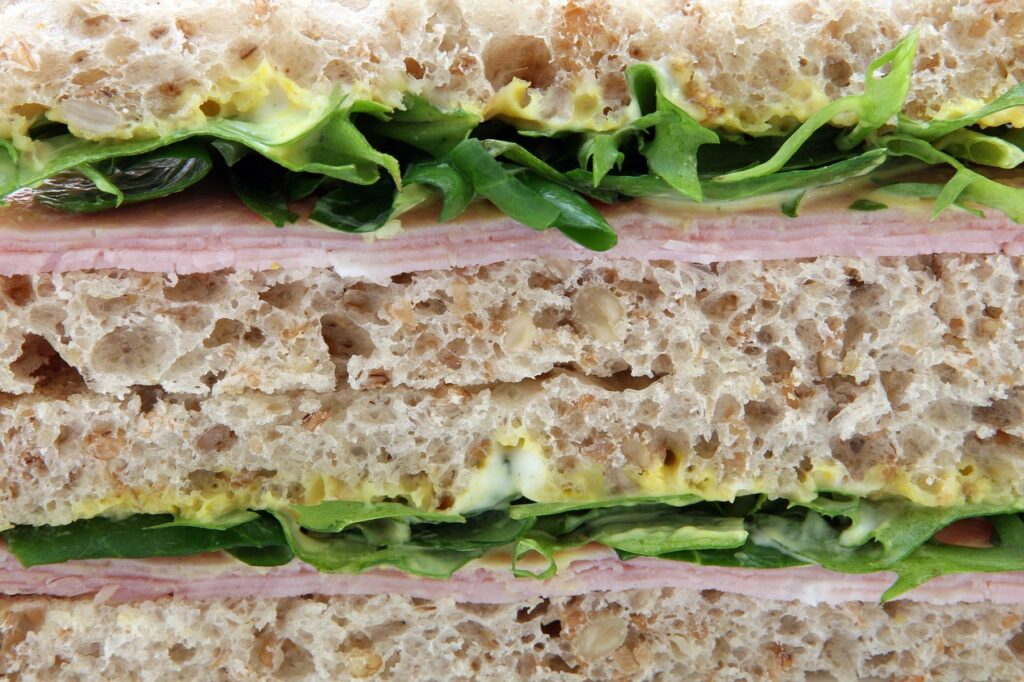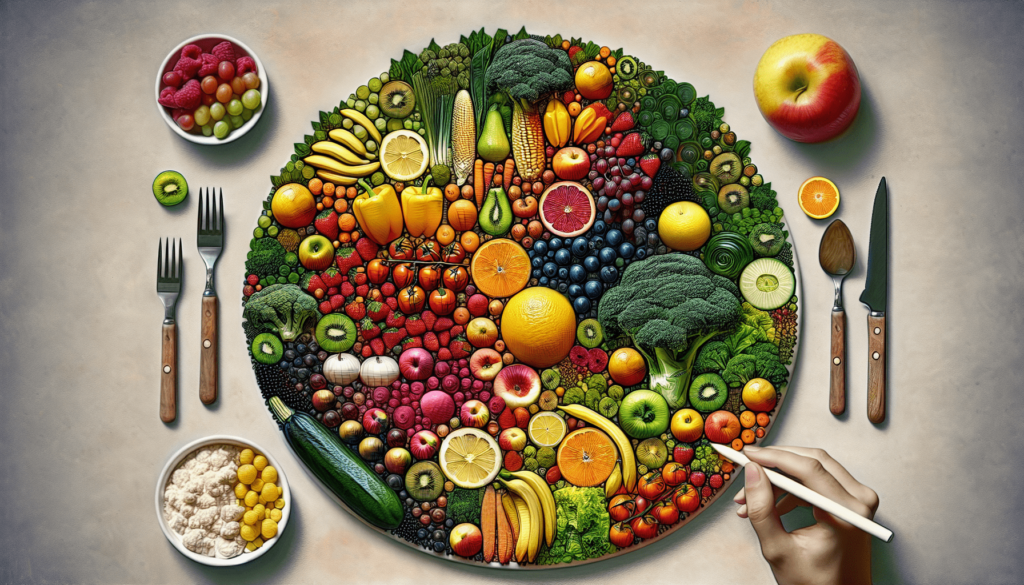Are you finding it challenging to maintain a healthy balance between your calorie intake and your hectic schedule? With our fast-paced lives and demanding routines, managing our calorie intake often takes a backseat. However, it is crucial to prioritize our health and nourish our bodies appropriately, even in the midst of a busy life. In this article, we will explore effective strategies and practical tips to help you manage your calorie intake without compromising on your daily commitments. Get ready to discover simple yet impactful ways to make healthier choices and maintain a nutritious diet, no matter how busy your life gets.
In This Article
ToggleUnderstanding Calorie Intake
What are calories?
Calories are a measure of the energy provided by the food and drinks we consume. They are units of energy that our body needs to perform various functions such as breathing, digesting food, and moving. Each person has a unique daily calorie requirement based on factors like age, sex, height, weight, and activity level.
Daily calorie intake
Daily calorie intake refers to the number of calories your body needs to maintain its current weight. It is essential to strike the right balance between the calories consumed and the calories burned through physical activity to achieve a healthy lifestyle. Consuming too few calories can lead to nutrient deficiencies, while excessive calorie intake can result in weight gain.
Factors affecting calorie intake
Several factors can influence your calorie intake, including age, sex, metabolic rate, physical activity level, and body composition. Younger individuals tend to have higher calorie requirements due to growth and higher activity levels. Men generally have higher calorie requirements than women because of their higher muscle mass. Additionally, a person with a faster metabolism will require more calories to maintain their weight than someone with a slower metabolism.
Importance of Managing Calorie Intake
Maintaining a healthy weight
Managing your calorie intake is crucial for maintaining a healthy weight. When you consume more calories than your body needs, the excess energy is stored as fat, leading to weight gain. On the other hand, consuming fewer calories than you burn can result in weight loss. Striking the right balance and maintaining a healthy weight is essential for overall well-being and reducing the risk of various health issues.
Preventing chronic diseases
Maintaining an appropriate calorie intake can help prevent chronic diseases such as obesity, heart disease, type 2 diabetes, and certain types of cancers. Excessive calorie intake, especially from unhealthy foods high in saturated fats, added sugars, and refined carbohydrates, can contribute to the development of these diseases. By managing your calorie intake and making healthy food choices, you can reduce the risk of chronic illnesses.
Boosting energy levels
Calories provide the fuel necessary for our body to function optimally. By managing your calorie intake and consuming nutrient-dense foods, you can ensure that your body receives the energy it needs to perform daily activities. Balanced calorie intake can prevent energy crashes, improve productivity, and enhance overall energy levels throughout the day.

This image is property of pixabay.com.
Setting Calorie Goals
Determining your daily calorie needs
To determine your daily calorie needs, you can use online calculators or consult a registered dietitian. These tools take into account various factors like age, sex, weight, height, and activity level to estimate your daily calorie requirements. Once you know your daily calorie needs, you can adjust your intake accordingly to meet your health and weight goals.
Creating a calorie deficit
If your goal is weight loss, creating a calorie deficit is essential. This means consuming fewer calories than your body burns. A safe and sustainable way to achieve this is by creating a moderate calorie deficit, typically 500 to 1000 calories per day. It is important to note that excessively low-calorie diets can be detrimental to your health and may lead to nutrient deficiencies and a slowdown of your metabolism.
Monitoring calorie intake
Keeping track of your calorie intake can be helpful in managing your calorie goals. There are various apps and websites available that allow you to track your food and calorie intake effortlessly. By monitoring your calorie intake, you can become more aware of your eating habits and make adjustments as necessary to stay on track with your goals.
Planning and Preparing Meals
Meal prepping
Meal prepping involves planning and preparing your meals in advance. This method helps you stay organized, saves time, and allows you to make healthier choices. By dedicating a specific time to cook meals for the week, you can ensure that you have nutritious options readily available and avoid relying on unhealthy takeout or fast food options during busy moments.
Balancing macronutrients
When planning your meals, it is important to focus on balancing your macronutrients: carbohydrates, proteins, and fats. Each macronutrient plays a vital role in your body and should be included in your daily calorie intake. Aim for a well-rounded meal with a good mix of whole grains, lean proteins, healthy fats, and plenty of fruits and vegetables.
Incorporating fruits and vegetables
Fruits and vegetables are packed with essential vitamins, minerals, fiber, and antioxidants while being low in calories. Aim to include a variety of colorful fruits and vegetables in your meals. They add flavor, texture, and nutrients to your dishes, making them more satisfying and nutritious.
Choosing healthier cooking methods
The cooking methods you use can significantly impact the calorie content of your meals. Opt for healthier cooking methods like baking, steaming, grilling, or sautéing with minimal oil instead of frying. These methods help retain the nutrients in your food and reduce the amount of added fats and calories.

This image is property of pixabay.com.
Making Healthy Food Choices
Reading nutrition labels
Reading nutrition labels can provide valuable information about the calorie content and nutritional value of the food you consume. Pay attention to the serving size and the number of calories per serving. Look for foods that are low in saturated fats, added sugars, and sodium while being high in fiber, vitamins, and minerals.
Choosing whole foods
Whole foods are unprocessed or minimally processed foods that are as close to their natural state as possible. They offer more nutrients and fewer additives compared to highly processed foods. Opt for whole grains, lean proteins, fruits, vegetables, and legumes as the foundation of your diet. These foods provide essential nutrients and are generally lower in calories, promoting better health and weight management.
Opting for low-calorie substitutes
When making food choices, consider opting for low-calorie substitutes. For example, choose low-fat or skim milk instead of whole milk, use unsweetened applesauce instead of oil in baking, or swap sugary drinks for water or herbal tea. These simple substitutions can significantly reduce your calorie intake without compromising on taste.
Avoiding processed and sugary foods
Processed foods tend to be high in calories, unhealthy fats, added sugars, and sodium. Avoiding or minimizing your consumption of processed foods can help control your calorie intake. Similarly, sugary foods like sodas, candies, and desserts provide empty calories without substantial nutrients. It is best to limit these treats and focus on healthier alternatives.
Mindful Eating Practices
Eating slowly and savoring each bite
Eating slowly and savoring each bite can help you become more aware of your body’s hunger and fullness cues. It takes about 20 minutes for your brain to register that you are full, so eating slowly allows you to recognize when you have had enough food. Additionally, it enhances the dining experience and allows you to appreciate the flavors and textures of your meals.
Listening to hunger and fullness cues
Being in tune with your body’s hunger and fullness cues is vital for managing your calorie intake. Eat when you are physically hungry and stop eating when you feel satisfied, but not overly full. Pay attention to your body’s signals and avoid eating out of emotional or boredom-driven hunger.
Avoiding distractions while eating
By minimizing distractions while eating, such as television or scrolling on your phone, you can bring your focus back to your food and fully enjoy your meal. Being present during mealtime encourages mindful eating, helping you recognize when you are satisfied and preventing overeating.
Practicing portion control
Portion control is crucial for managing calorie intake. Be mindful of serving sizes and aim to fill half your plate with vegetables, a quarter with lean protein, and a quarter with whole grains or starchy vegetables. Using smaller plates and bowls can also help control portion sizes by tricking your brain into perceiving a fuller plate.

This image is property of pixabay.com.
Incorporating Physical Activity
Finding time for exercise
Incorporating physical activity into your routine is key for managing calorie intake and overall well-being. Find time each day for exercise, even if it’s just a quick walk during your lunch break or taking the stairs instead of the elevator. Aim for at least 150 minutes of moderate-intensity aerobic activity or 75 minutes of vigorous-intensity aerobic activity per week.
Choosing activities you enjoy
To make exercise more sustainable and enjoyable, choose activities that you genuinely enjoy. Find a sport, dance class, or workout routine that brings you joy. Engaging in activities you love increases your chances of sticking to a consistent exercise routine and helps burn additional calories.
Increasing daily movement
In addition to dedicated exercise sessions, increasing your daily movement can contribute to managing your calorie intake. Make an effort to incorporate more physical activity in your daily life, such as taking the stairs instead of the elevator, parking farther away from your destination, or going for short walks during breaks.
Managing Stress and Emotional Eating
Identifying triggers
Stress and emotions can often lead to emotional eating, where food is used as a coping mechanism. Identifying the triggers that drive you to eat emotionally is the first step in managing this behavior. Are you eating when you’re bored, lonely, or stressed? Understanding these triggers allows you to find healthier alternatives to dealing with these emotions.
Seeking support
Seeking support from friends, family, or professionals can be beneficial when managing stress and emotional eating. Talking about your feelings and concerns can help alleviate stress and provide you with alternative strategies to manage emotions without resorting to food. Consider joining support groups or seeking guidance from therapists, nutritionists, or registered dietitians.
Finding healthier coping mechanisms
Instead of turning to food during times of stress or emotional distress, find healthier coping mechanisms. Engage in activities like practicing yoga or meditation, journaling, listening to music, or going for a walk. These strategies can help manage stress while simultaneously reducing the likelihood of turning to food for emotional comfort.

Snacking and Calorie Control
Healthy snack options
Opt for healthy snack options that are low in calories but satisfying in taste. Some examples include fresh fruits, raw vegetables with hummus, Greek yogurt, nuts, or whole-grain crackers with nut butter. These snacks provide essential nutrients and can help keep hunger at bay without blowing your calorie intake for the day.
Portion control strategies
Practicing portion control is essential when it comes to snacking. Instead of mindlessly eating from a large bag of chips or cookies, portion out a single serving size into a bowl. This helps you control your calorie intake and prevents overeating. Sticking to pre-portioned snacks or using small containers for your snacks can also assist in managing portion sizes.
Avoiding mindless snacking
Mindless snacking, where you eat out of habit or boredom, can contribute to excessive calorie intake. It is important to be aware of your snacking habits and identify if you are truly hungry or simply looking for a distraction. If you find yourself mindlessly snacking, try engaging in a different activity or drink a glass of water to determine if you are genuinely hungry.
Seeking Professional Guidance
Consulting a registered dietitian
Seeking the guidance of a registered dietitian can provide valuable insight and personalized advice regarding your calorie intake and overall nutrition. They have the expertise to assess your individual needs and goals, create a personalized meal plan, and offer ongoing support and guidance to help you achieve and maintain a healthy lifestyle.
Creating a personalized plan
A registered dietitian can work with you to create a personalized plan that aligns with your calorie goals, lifestyle, and preferences. They will take into consideration your likes, dislikes, dietary restrictions, and health concerns to design a plan that is sustainable and tailored to your specific needs. This personalized approach increases the likelihood of long-term success in managing your calorie intake.
In conclusion, understanding and managing calorie intake is a vital component of a healthy lifestyle. By being mindful of the factors influencing calorie intake, setting realistic goals, planning and preparing meals, making healthy food choices, practicing mindful eating, incorporating physical activity, managing stress and emotional eating, controlling snacking, and seeking professional guidance when needed, you can successfully maintain a balanced calorie intake and improve your overall well-being.
Related posts:
 What is the appropriate calorie intake for maintaining my weight?
What is the appropriate calorie intake for maintaining my weight?
 Managing Diabetes-Related Fatigue and its Effects on Daily Life
Managing Diabetes-Related Fatigue and its Effects on Daily Life
 Women’s Weight Loss Journal: Track Your Daily Meals, Stay on Target with Calorie Counting and Meal Planning – Motivational Quotes Included
Women’s Weight Loss Journal: Track Your Daily Meals, Stay on Target with Calorie Counting and Meal Planning – Motivational Quotes Included
 BioX L-Carnitine Liquid: Powerful Weight Loss and Muscle Recovery Formula – 1200mg of 100% Pure L-Carnitine Tartrate – Sugar Free, Calorie Free – Blue Raspberry Flavor – 16 oz / 473 mL – Pack of 1
BioX L-Carnitine Liquid: Powerful Weight Loss and Muscle Recovery Formula – 1200mg of 100% Pure L-Carnitine Tartrate – Sugar Free, Calorie Free – Blue Raspberry Flavor – 16 oz / 473 mL – Pack of 1
 Vanilla Flavored ProtiDiet Shake: High Protein, Low Calorie, Low Carb, Appetite Suppressant for Weight Loss
Vanilla Flavored ProtiDiet Shake: High Protein, Low Calorie, Low Carb, Appetite Suppressant for Weight Loss
 Managing weight loss challenges with diabetes
Managing weight loss challenges with diabetes











No comment yet, add your voice below!